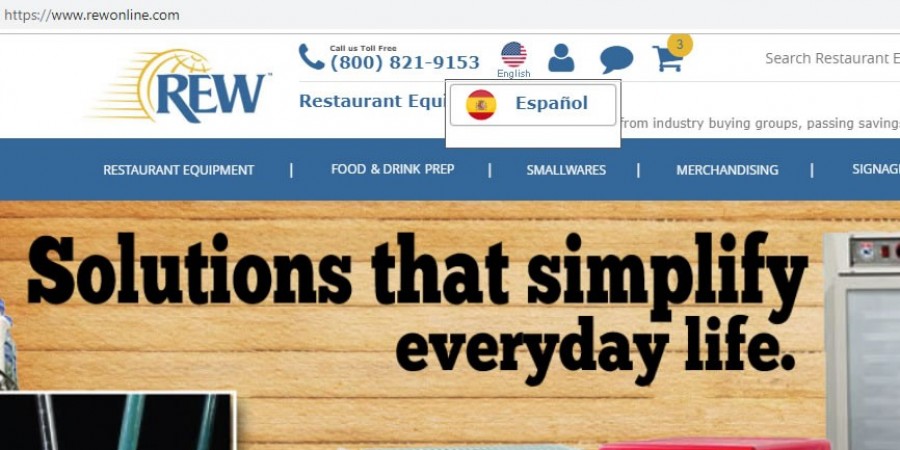
In our last article on opening a new restaurant, we covered running advertising campaigns. In this article, we'll discuss key hiring strategies.
It can be argued that a restaurant is only as good as the staff that works in it. After all, you can have all the creative recipes and service concepts in the world, but it doesn't mean much without talented people in the front and back of house to pull both off correctly. For this reason, the hiring stage is of absolute importance to the longevity and performance of the restaurant.
There are some key principles that should govern the hiring process. First and foremost, you and your manager or managers must set ground rules for hiring. What skill sets are you looking for? What are the organizational values and culture that your ideal employees should embody? Answering these questions with certainty will help you and your team structure interviews, where to look for prospective candidates, and so on. In general, you want to look for those who can work well in a team, are adaptable when necessary, and are passionate about restaurant service.
You should also draw up specific job descriptions that applicants can use to understand what it is you are looking for. Clearly lay out the responsibilities and expectations of each role so that there is no misunderstanding on your part or the applicant's. This will help you and your team organize your business. Additionally, it will help you ensure that each job role created is meaningful and essential to the restaurant.
Before sending out any interview invites, thoroughly review the prospective candidates. The easiest way to assess these candidates is to read their resumes and conduct online research. Look for accomplishments, the types and titles of positions held, and anything else that can tell you how fit the candidate is for a particular job role at your restaurant. If you spot gaps in employment and are still willing to move forward with an interview, be prepared to ask about the gaps—you need to know whether that has had any impact on a candidate's effectiveness.
When hiring candidates, you should be weary of where they are coming from—that is, where they have worked previously. This is important because you don't want to override your business' culture and identity with that of another restaurant business. On top of that, being more diverse with your hiring choices will enrich your business with a healthy range of perspectives and work styles.
Candidates should also be interviewed more than once by more than two hiring managers. A first interview might go very well for both the restaurant and the candidate, but it may not tell you everything you need to know about a candidate's capabilities. Going for at least a second round with different questions or interview styles can help shed more light on a candidate's strengths, weaknesses, and potential value to the restaurant. Making multiple managers interview a candidate also prevents one manager's bias from being the sole deciding factor in the hiring process.
Of course, interviewing a potential hire isn't just about listening to what they say—it's about watching what they do. A candidate's mannerisms and behaviors can tell you things about a candidate that words may not share. A candidate may say that they are orderly and punctual, but did they arrive at the interview on time? Did they mind their appearance and hygiene before showing up? If there are any inconsistencies with the statements given by the candidate, keep a watchful eye. You will likely know it when you see it.
After the interview process, you should conduct background checks on your candidates. This includes contacting provided references, researching public records, and overall confirming that the information given by a candidate's responses are accurate and certifiable. It can be difficult to research certain elements of a candidate's history, which is why you should consider investing in a private investigator or company that can work with you and the candidate to conduct background research. Last but definitely not least, the employer must make sure to abide by state and federal laws regarding background checks. You cannot simply dig up whatever information you'd like on demand; there are rules and regulations for this process, including the consent of the applicant for a background check. The applicant must also be informed exactly what kind of information will be collected and how it will be used in the hiring process.
………………………………………………………….
Hiring is complicated and challenging in its own ways, but with the right amount of patience and diligence, the best candidates for the jobs in your restaurant will become clear. The thing to keep in mind as you hire is the quality of service at your establishment. Working toward that goal in everything that you do when it comes to hiring and selection will improve your restaurant's operations in the long run.


Bad |
Rate as 5 star | Good |
||


 Filter by category. | |
| REW | 152 |
| REW Academy | 131 |
| Restaurants | 129 |
| Website Categories | 125 |
| Articles | 117 |
| Kitchen | 53 |
| Vendors | 32 |
| Tutorials | 29 |
| Food | 26 |
| Customers | 22 |
| Events | 15 |
| Interviews | 9 |
| Web | 8 |
| Funny | 7 |
| Infographic | 6 |
| Social Media | 5 |
| Trends | 3 |
 Most popular (top 5) | |
 | Life Kitchen Florida App |
 | Indoor Chairs and Bar Stools Overview |
 | Booths |
 | Restaurant Equipment World (REW) Launches NEW Spanish Version of Website |
 | Complete Guide to Cooking Knives |